US confirms al-Shabab leader Ahmed Godane killed
- Published
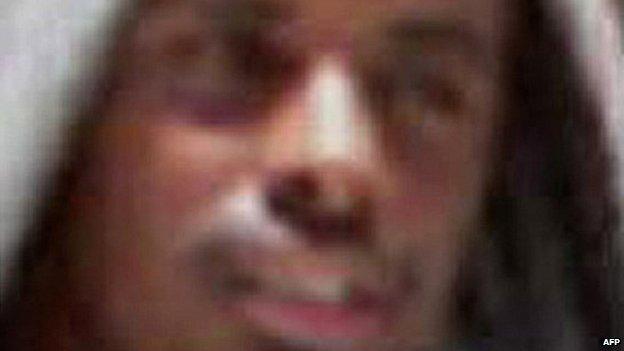
The US Rewards for Justice programme issued this photograph of Godane in 2012
The leader of the Somali Islamist group al-Shabab, Ahmed Abdi Godane, was killed following a US attack earlier this week, the Pentagon has said.
The US carried out air strikes on Monday night destroying a vehicle and an encampment south of the capital.
Somalia's president issued a statement on Friday urging militants to embrace peace after the death of their leader.
Godane was one of the US state department's most wanted men.
It had placed a bounty of $7m (£4.2m) on his head.
Somali analyst Nuur Mohamud Sheekh told the BBC that Godane's death "will deal a major blow to the group.
"It will have an impact in terms of affecting the morale of the fighters on the ground but it is not the end of al-Shabab in the short or medium term."
He added there was no likely successor.
On Friday, President Hassan Sheikh Mohamed announced a 45-day amnesty for militants who are willing to renounce al-Shabab.

Ahmed Abdi Godane:
US put $7m (£4m) bounty on his head in 2012
Pledged allegiance to al-Qaeda in 2009
Became al-Shabab's top commander after US air strike killed his predecessor Aden Hashi Ayro in 2008
Sentenced to death in absentia for 2008 attack in Somaliland's capital, Hargeisa
Studied in Sudan and Pakistan, where he became radicalised
Said to have fought in Afghanistan
Was reputed to be a good orator and poet
Also known as Mukhtar Abu Zubair

Pentagon Press Secretary Rear Adm John Kirby said the military action on 1 September had "led to his [Godane's] death", external.
The US has supported the African Union (AU) force that has driven al-Shabab out of the capital, Mogadishu, and other towns since 2011.
The al-Qaeda-linked fighters want to overthrow the UN-backed Somali government and frequently attack government targets as well as neighbouring countries that provide troops to the AU force.
'Painstaking work'
A statement from the White House press secretary described al-Shabab as the "largest al-Qaeda affiliate in Africa".
Godane's death "reflects years of painstaking work by our intelligence, military and law enforcement professionals", the statement said, external.
The al-Shabab leader had publicly claimed the group's responsibility for the deadly Westgate shopping centre attack in September last year, he said.
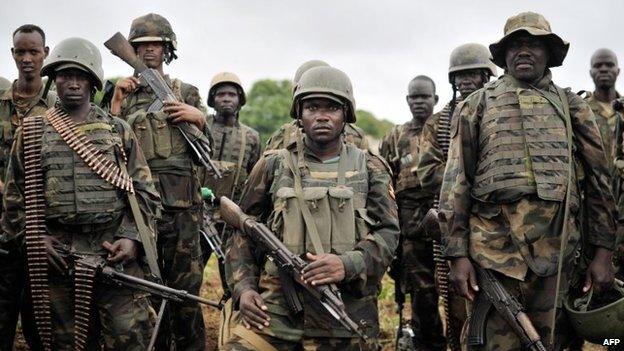
The African Union force (pictured here) and the Somali army launched a major offensive last weekend
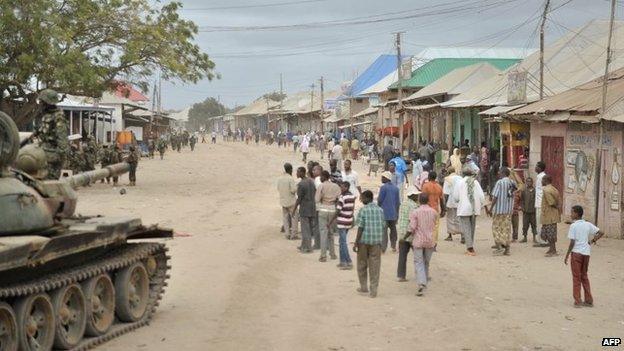
Several towns have been liberated in the push dubbed Operation Indian Ocean
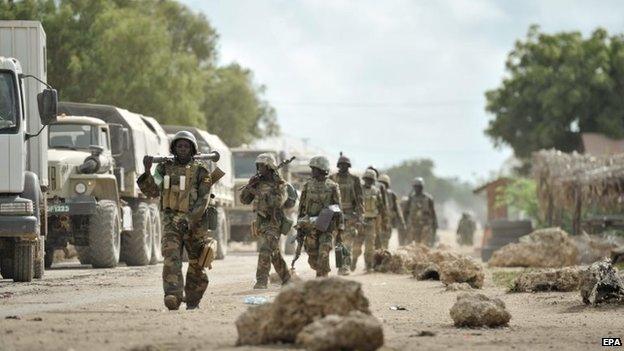
The coastal area between Mogadishu and Kismayo is under al-Shabab's control giving it access to ports
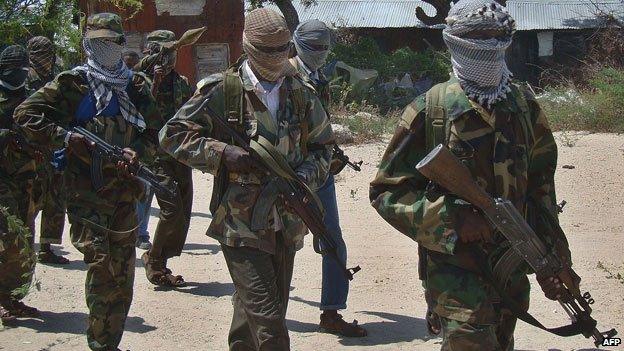
Al-Shabab fighters, who want an Islamic state, tend to melt into the civilian population when attacked
"Under his leadership, the group has claimed responsibility for many bombings - including various types of suicide attacks - in Mogadishu and in central and northern Somalia, typically targeting officials and perceived allies of the Somali government as well as the former transitional federal government of Somalia.
"Godane has also continued to oversee plots targeting Westerners, including US persons, in East Africa."
The White House said the US would continue to use the tools at its disposal - "financial, diplomatic, intelligence and military" - to address the threat of al-Shabab and to support the Somali government's efforts to "build a secure and stable future for the Somali people".
The US attack, using manned and unmanned aircraft, took place about 240km (150 miles) south of Mogadishu on an encampment and convoy of vehicles - believed to have been made up of three lorries and a smaller vehicle.
It took place days after the 22,000-strong AU force had launched a major offensive to capture territory from the militants in the Lower Shabelle region.